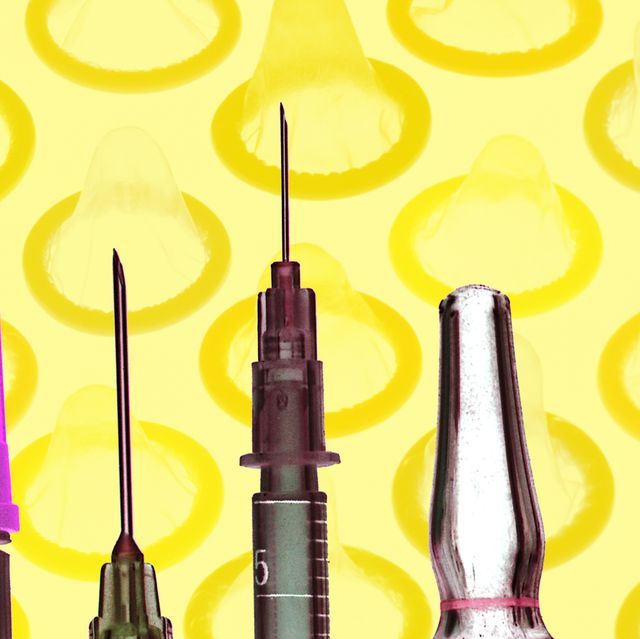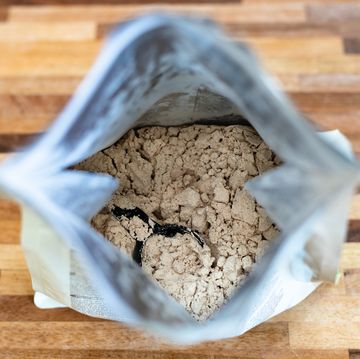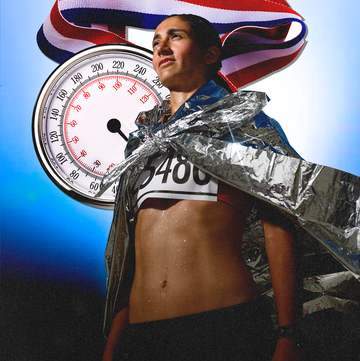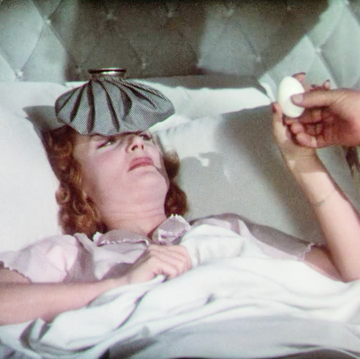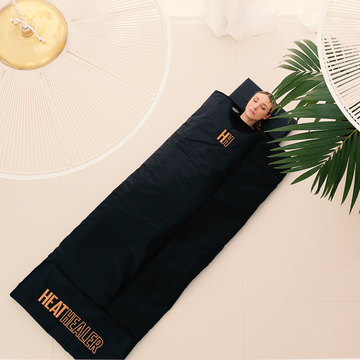From footing birth control bills to putting up with annoying, sometimes painful side effects of contraceptives like the IUD, there’s no question that it’s women who bear the brunt of responsibility in preventing unwanted pregnancies.
So it’s no wonder that researchers would L-O-V-E to find an equitable birth control method for men beyond the male condom, which has its downfalls — particularly at times when a guy doesn’t happen to have one, finds it uncomfortable, or fails to use it properly.
Enter, the male birth control shot. This bad boy has been on scientists’ agendas for years, culminating in some recent animal studies of a non-hormonal contraceptive device known as Vasalgel, essentially, a shot in the balls that is expected to make its IRL appearance in 2018. (Bet your boyfriend can’t wait!)
But a large new study published in The Journal of Clinical Endocrinology & Metabolism is bringing mankind closer to a hormonal birth control shot for men that can reversibly hinder their ability to impregnate sexual partners.
This shot actually involves two injections: a long-acting progestogen and a long-active testosterone, both of which are designed to go in the muscle. When a guy is ready to make a baby, he simply stops getting the shots, at which point, sperm counts should gradually return to normal.
To test the shot’s effectiveness, researchers recently administered the injections to 320 men between the ages of 18 and 45 once every eight weeks. After their sperm counts were down, they were asked to stop using other modes of contraceptive. Among the 111 men who ended up using this method for a whole year, the shot proved 96 percent effective in suppressing sperm production with fewer than 1.6 pregnancies per hundred users. Ultimately, that puts its effectiveness around 92.5 percent, close to that of the IUD, female birth control shots, and the pill.
However, before the official end of the study, 20 men dropped out because of adverse side effects, and a safety review committee stopped study recruitment, ultimately leading researchers to call the whole thing off. The side effects reported by participants included complaints like acne, injection site pain, an increase in sex drive, and mood disorders including depression. These outcomes aren’t ideal, but it’s worth noting that they’re familiar. That’s because women who rely on IUDs and birth control RN are often plagued by similar side effects.
Don’t let that piss you off (too much). Despite the fact that researchers terminated their study, 75 percent of the guys enrolled were so stoked with the shot regardless of the side effects that they said they’d be willing to keep using it even after the trial concluded. So it’s a good thing that study authors are hopeful that adjusting the shot’s dosage could alleviate some of its worst side effects.
There’s no word on when male birth control shots will be officially approved for use, if ever. And, even if the male birth control shot actually makes it to market, it won’t protect you from sexually transmitted infections, meaning it won’t replace condoms for people with multiple partners anyway. Still, is it wrong to feel like women are winning?
Update: An earlier version of this article implied that all 320 men were included in the study’s final results, with the shots preventing pregnancy 96 percent of the time. In fact, only 111 men were accounted for in the final study’s results, and the shots were only effective in preventing pregnancy 92.5 percent of the time.
Get all the ~FiTsPiRaTiOn~ directly in your feed. Follow Facebook.com/CosmoBod.
Follow Elizabeth on Twitter and Instagram.

Elizabeth Narins is a Brooklyn, NY-based writer and a former senior editor at Cosmopolitan.com, where she wrote about fitness, health, and more. Follow her at @ejnarins.
